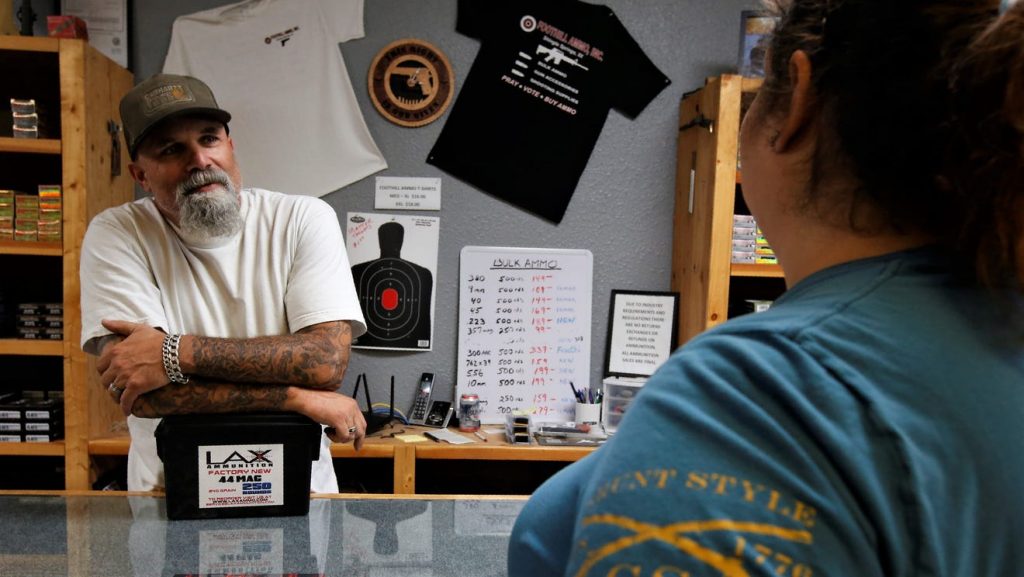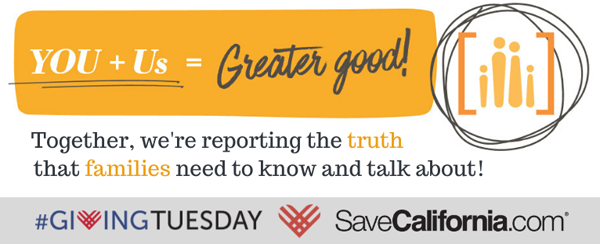
In our increasingly brutal and non-Christian culture, Californians who want “life insurance” for themselves and their family members often own a gun or guns.
And, of course, guns need bullets and shotguns need shells in order to function for their loving purpose of defending and saving innocent lives. But protecting yourself, your family, and other innocent people is getting harder because of bad politicians and foolish voters.
Remember, our Democrat Governor has already sent the message that you can get away with murder and he’s even let convicted murderers go loose. What’s more, California voters didn’t think critically about how approving Proposition 47 in 2014 and other soft-on-crime measures endanger you, your family, and your neighbors, by increasing thefts, robberies, assaults, rapes, and murders.
I recently learned that 62,000 otherwise law-abiding Californians have been denied bullets and shotgun shells. This includes members of law enforcement, who would never officially be labeled a “prohibited person” who can’t legally possess ammunition. These 62,000 “safe” folks were prohibited from buying between July and November this year.
These denials of Californians’ Second Amendment rights are happening because of Proposition 63 in 2016. Multi-million-dollar deception from Prop. 63 sponsors Gavin Newsom and the California Democratic Party resulted in foolish voters passing this scheme to require background checks and registration for ammunition, among other restrictions.
And unless and until a constitutional lawsuit gets this struck down in the federal courts, Californians interested in basic safety for themselves and their families will suffer from uncomfortable bureaucratic hurdles, unjust delays, higher expenses, and lack of privacy.
Here’s the Rhode lawsuit and other Second Amendment cases of which reasonable Californians hope will eventually free up their ammunition purchases again:
“The lawsuit, titled Rhode v. Becerra, challenges California’s new ammunition sales restrictions as a violation of the Second Amendment and Commerce Clause of the United States Constitution.
“The filing of Rhode marks the fourth lawsuit filed by CRPA attorneys with support from the NRA challenging the provisions of Proposition 63 and the other ‘Gunmageddon’ bills. Once such lawsuit, titled Duncan v. Becerra, has already succeeded in obtaining an important injunction against Proposition 63’s ban on the possession of magazines capable of holding more than ten rounds. The other two lawsuits, titled Rupp v. Becerra and Villanueva v. Becerra (both of which challenge California’s ‘assault weapon’ restrictions and registration requirements), are also seeking injunctions while those lawsuits are pending.” Source
So, until relief is granted, here’s how to buy ammo in California:
1. You can no longer buy ammunition out of state and bring it back yourself or have a seller ship it to you.
2. You can buy online, but your ammunition must be shipped to a licensed vendor in California, who will charge you a processing fee of around $20:
“To dispel the confusion, yes, ammunition can still be bought online or through a catalog. However, you can’t have ammunition sent directly to your residence. Furthermore, your packages must be shipped first to a licensed ammunition vendor who must then charge you a processing fee.” Source
3. When buying at a store or online, you must pay for a $1 instant background check. If your name and address on file with the Department of Justice matches your California Drivers License name and address, then you can buy. Here’s a step-by-step guide.
If you pass the $1 background check, you can buy ammunition right there at the store counter, yet the sale will now be accompanied by paperwork listing who you are, what you bought, how much you bought, the salesman’s name, etc. This amounts to “backdoor registration” on ammunition sales, since the government will now know what you own and how much you own (it’s not known how long the State will hold onto your information).
4. Unfortunately, you’ll fail your instant $1 background check if your DL name and address doesn’t match your DOJ registration, or if you don’t have already have a firearm registered in your name with DOJ. If denied, you’ll pay $19 for a deeper DOJ background check that will further invade your privacy and could take a couple months to conditionally pass you. See the information you must provide.
“The DOJ says in court filing more than 19,000 ammunition buyers weren’t in the database at all, so they were denied when they went to buy ammo. More than 22,000 were rejected because of address mismatches, many of them due to having moved since they last bought a gun. Nearly 8,000 people had names in the state’s gun registry that didn’t match their identification, according to the Department of Justice filing.” Source
5. Stop and realize that California’s Democrat-controlled government wants your private information so they can send police to take your gun away if you’re considered a threat:
Under the state’s “red flag” laws, Californians can petition a court to have police remove firearms from those threatening to harm themselves or others. The law was recently expanded to allow teachers, employers and coworkers to seek the temporary removal of firearms from the homes of people making threats.
“Because of this DOJ database, (it) allows law enforcement to know that that person has arms, to know what kind of arms they have and to know where they reside, so they can ensure that the people who have been subject to threats are safe and that guns are removed from that dangerous situation,” he said. Source
6. To avoid the intensive and lengthy $19 background check that locks your details into the state database, an expert gun shop manager told me he would avoid this process by simply buying a new firearm. This way, he said, you’re only updating your address.
He also said to stop by an expert shop anywhere in California to ask about the process, since if you have an existing firearm that you bought years ago, and have since moved, you can verbally provide the gun store with a California address where your firearm was and is registered with the state.
Either way, this automated online update can take up to 48 hours. He said if you’re declaring an existing firearm already registered with the State, you must provide your old address, your new address, and your gun information, including its serial number.
7. The gun store expert I talked with also told me that if I bought a handgun before 1991, I wouldn’t have to declare my purchase at all, since there were no California handgun registrations required before that year. He also said that registrations for handguns purchased between 1991 and 1996 have not necessarily been retained by the State, and that 2012 was the first year the state required registration for long guns.
So there you have it. My next ammunition purchase, I will do my homework in advance and work with a gun store that I trust. But if I were low on ammo, I would quickly assemble any needed paperwork, and talk with an expert at my first opportunity. Lastly, I’d compare prices for online suppliers that still ship ammunition to California, like this one does.
However, if you want to prevent theft, avoid a home-invasion robbery, and not have to confront someone breaking in, the very first thing I recommend you do is harden your doors and windows. See this product, which will make your doors virtually kick-proof.
In closing, the Democrat politicians’ attack upon guns and ammunition is wrong-headed. Crimes committed with guns are a sin problem, and if guns are outlawed, outlaws will still have guns. And if outlaws couldn’t get guns, they’d hurt or murder others with sharp or heavy instruments (as they’ve done through the centuries).
A culture that doesn’t acknowledge sin commits even more sin and crimes, and, in its denial, psychologically projects upon guns and gun owners the blame for the sins of individual criminals. Yet reasonable people should reject these anti-gun lies and protect their families by fully exercising their Second Amendment rights.
The first step in stopping mass shooters is a realization among people that nobody in government is going to get it done. A realization that includes an understanding of what it’s come down to. Hard to digest for Christians, but the realization that we have to be the protectors that this country needs. Not just spiritually. But physically, should it be necessary. And that means being ready to do whatever is necessary should a shooting breakout where we are.
The Christian Gun Owner Role In Stopping Mass Shooters





 RSS 2.0 Feed
RSS 2.0 Feed